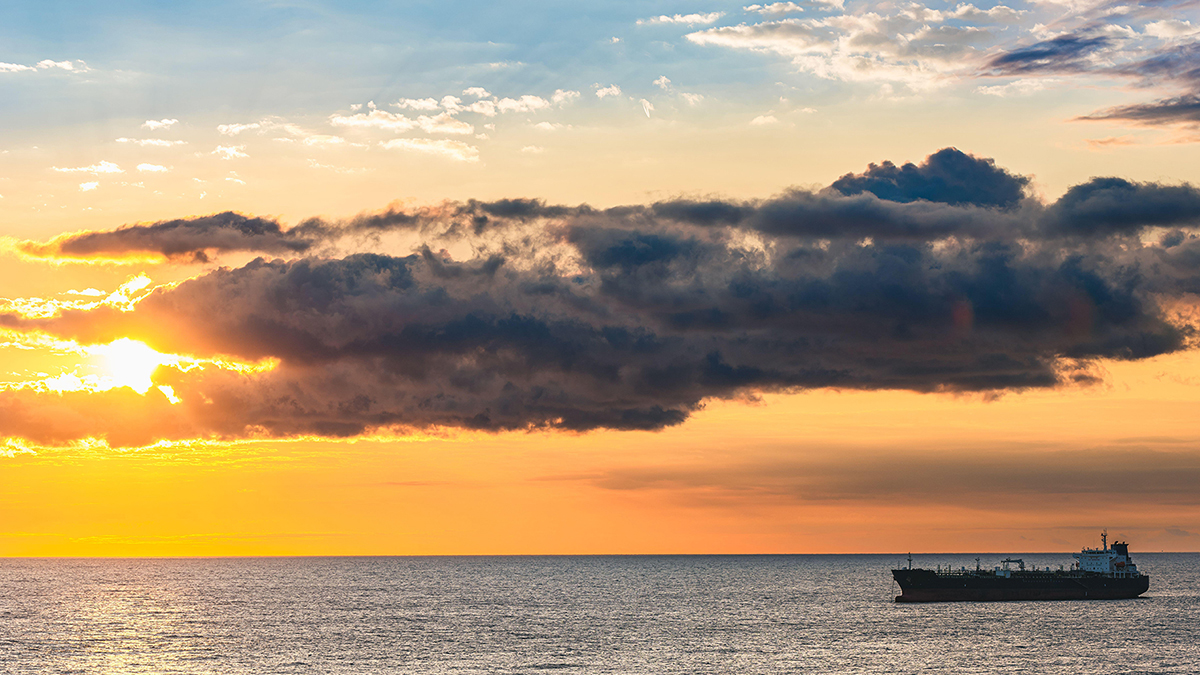‘Dark fleet’ a major concern for marine losses: WTW’s Lockwood
Simon Lockwood says there is a high degree of uncertainty about what would happen if there was an incident involving a dark fleet vessel
Rise in sanction-busting practices has had a more dramatic influence on marine insurance than the pandemic, WTW’s head of shipowners says
Geopolitical instability will continue to drive marine losses as insurers manage the risk posed by the “dark fleet”, WTW’s head of shipowners says.
Simon Lockwood says the impact of sanctions on Russia from its war in Ukraine and the rise of sanction-busting shipping practices has had a “more dramatic influence” on marine insurance than the coronavirus pandemic and he expects its impact on losses to continue.
The war has “prompted significant changes within the industry as businesses aim to handle sanctions and their consequences”, Lockwood tells Insurance Day.
 Simon Lockwood, head of shipowners, WTW
Simon Lockwood, head of shipowners, WTW
The dark fleet is a term used to describe vessels whose ownership is unclear, whose insurers are obscure and that continue to trade Russian oil in defiance of Western sanctions and the G7 oil price cap.
While these vessels do not present a challenge in terms of direct insurance, Lockwood says, having dark fleet operators sailing in proximity to compliant, International Group-insured owners creates its own insurance risks.
“What happens when your ship collides with a vessel that is part of the dark fleet? What happens when one of those ships runs aground and causes a massive pollution event that isn’t going to get covered?” he asks.
Lockwood is clear there is a high degree of uncertainty about what would happen in the case of a hypothetical incident involving a dark fleet vessel.
The outbreak of the Russia-Ukraine war caused an initially choppy period for war insurers of vessels using the Black Sea, Lockwood says. The unique geographical constraints of the Bosporus meant “significant claims” were caused not by physical losses or damage – although some vessels were attacked – but because owners and operators were deprived of the use of their vessels as they became stuck in Ukrainian ports.
Lockwood suspects the final loss numbers would not come close to the $900m-worth of ships that were initially stuck and “would probably be less than $500m”.
Mounting conflict
With respect to the mounting conflict between Israel and Hamas, he says the consequences, especially concerning the potential involvement of Iran, need to be “closely watched”. Iran’s history of targeting ships – most prominently when the country seized the UK-flagged Stena Impero in 2019 – was part of a picture of “increasing regional tensions”, Lockwood says.
Aside from geopolitical risks, Lockwood says insurers need to be aware of the “enhanced” risks associated with the shipping industry’s decarbonisation efforts, mainly associated with the adoption of new technologies and transitioning sources of energy for the global fleet.
This year has been a bellwether one for the sector’s sustainability pathway, with the International Maritime Organization – the industry’s UN-backed regulator – establishing a net-zero target “on or around” 2050.
This increased ambition, combined with a range of other UN- and EU-driven laws aimed at curbing the sector’s carbon impact, has pushed insurers to “support clients’ long-term moves to do the right thing”.
However, Lockwood continues, the industry’s push to decarbonise could cause “short-term losses that are driven by the teething problems of technological change”.
Lockwood points out the industry is looking to shift away from fossil fuels and things that have long been taken for granted, such as fuel availability, might be compromised in a market where ships are burning ammonia, green methanol, biofuels and other low-carbon fuels.
“What happens when your ship collides with a vessel that is part of the dark fleet? What happens when one of those ships runs aground and causes a massive pollution event that isn’t going to get covered?"
The binding nature of the IMO’s targets for the entire global fleet means insurers will find it difficult to avoid these risks, and with the average lifespan of a commercial vessel pegged at around 20 years, shipping companies and insurers have only until the end of this decade to establish and, where feasible, derisk their decarbonisation strategies. “For every evolution, there’s going to be a new challenge”, Lockwood says.
On pricing trends for hull and machinery, he says he does not expect “significant correction” of pricing in either direction.
That the market environment for hull and machinery insurance is, he says, at its “most positive level” since 2017. A reduction in hull and machinery claims and growing premium income is currently combining to drive “an increase in capacity and an increase in appetite”, but Lockwood says this increase in capacity is coming not only from incumbents looking to grow their market share, but also from new market entrants.
Ultimately, this competition will benefit insurance buyers, he adds.
Lockwood concludes there are continued signs of optimism for insurers. “This is an industry that thrives in times of instability and crisis,” he says. “Look at what the tanker market is doing at the moment in terms of profitability – the insurance market will respond to that accordingly.”

